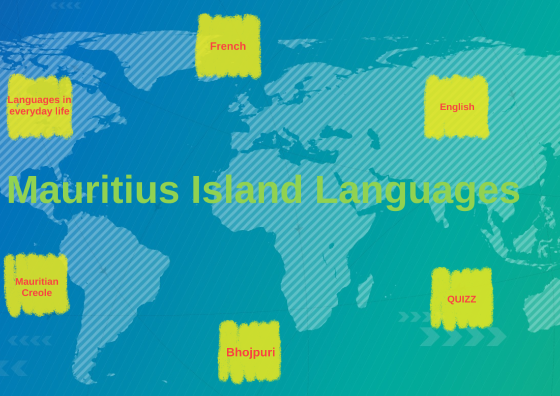Mauritius, a very small island nation and yet has tons of languages spoken. At the heart of this diversity lies its unique linguistic landscape, shaped by centuries of colonial history, immigration, and cultural fusion. Despite its size, Mauritius is a multilingual society where languages coexist in daily life, education, media, and administration.
The National Language: Mauritian Creole (Kreol Morisien)
Mauritian Creole, locally known as Kreol Morisien, holds the status of the national language. Spoken by the vast majority of the population, it is the most widely used language in informal settings and serves as a vital symbol of national identity and unity.
Kreol Morisien originated during the French colonial era as a pidgin language developed for communication between French colonizers and enslaved Africans. Over time, it evolved into a fully developed creole language, drawing primarily from French vocabulary while incorporating elements from African, Malagasy, English, and Indian languages.
Although it is not the official language, Kreol Morisien was officially recognized in the education system in 2011 and is now taught in primary schools. Efforts are ongoing to standardize its orthography and grammar, including the publication of dictionaries and grammar guides. The language is also increasingly used in literature, music, theater, and even politics. Some even say that Creole is an easier version of French and you can pick it up easily if you simply pay attention. However, if you do not know Creole, you can still easily communicate because people there generally speak multiple languages.
The Official Language: English
English is the official language of Mauritius and is primarily used in government, the judiciary, and formal education. Parliamentary debates, official documents, and court proceedings are conducted in English. Most textbooks in schools are also written in English, and it serves as the main medium of instruction from primary through tertiary education.
However, English is not the most commonly spoken language in day-to-day interactions (some don’t have any knowledge of English and might be difficult to deal with them if you only know English).
French: The Language of Media and Culture
French is sort of THE language in the Mauritian society among all the other non-national languages. It is widely spoken across the island and is the dominant language in the media, including newspapers, radio, and television. Many Mauritians are fluent in French, and it is often used in private schools and cultural activities.
Its influence remains strong due to the country’s colonial past and cultural ties with the Francophone world.
Asian and Indian Languages: Cultural Pillars
Due to the large population of Indian descent, several Indian languages are also spoken in Mauritius, mainly for religious and cultural purposes. These include:
- Hindi: Taught in schools and used in Hindu religious ceremonies.
- Bhojpuri: Once widely spoken among Indo-Mauritians but now in decline, though still valued as part of cultural heritage.
- Tamil, Telugu, Marathi, and Urdu: These languages are maintained by specific communities and used in cultural organizations, temples, mosques, and community schools.
Despite the reduced everyday use of these languages, they play an essential role in maintaining ethnic identity and are often taught as optional subjects in schools.
Chinese Languages
The Sino-Mauritian community, though relatively small, maintains linguistic ties through Chinese languages such as Mandarin and Cantonese. These are often used in religious and cultural contexts and taught in Chinese-medium schools and associations.
Arabic
Arabic is primarily used in religious education among the Muslim population, especially for reading the Quran. While not commonly spoken, it is taught in mosques and Islamic institutions.
A Model of Multilingual Harmony
Mauritius stands out as a remarkable example of linguistic pluralism. Rather than creating division, the coexistence of multiple languages has fostered a unique cultural synergy. I think apart from India, this is the only country I can think of that has so many languages widely spoken and respected. Most Mauritians are multilingual, often switching between languages depending on the social context. For example, a typical Mauritian might speak Kreol at home, English at school, French with the media, and an ancestral language at religious or cultural events.
